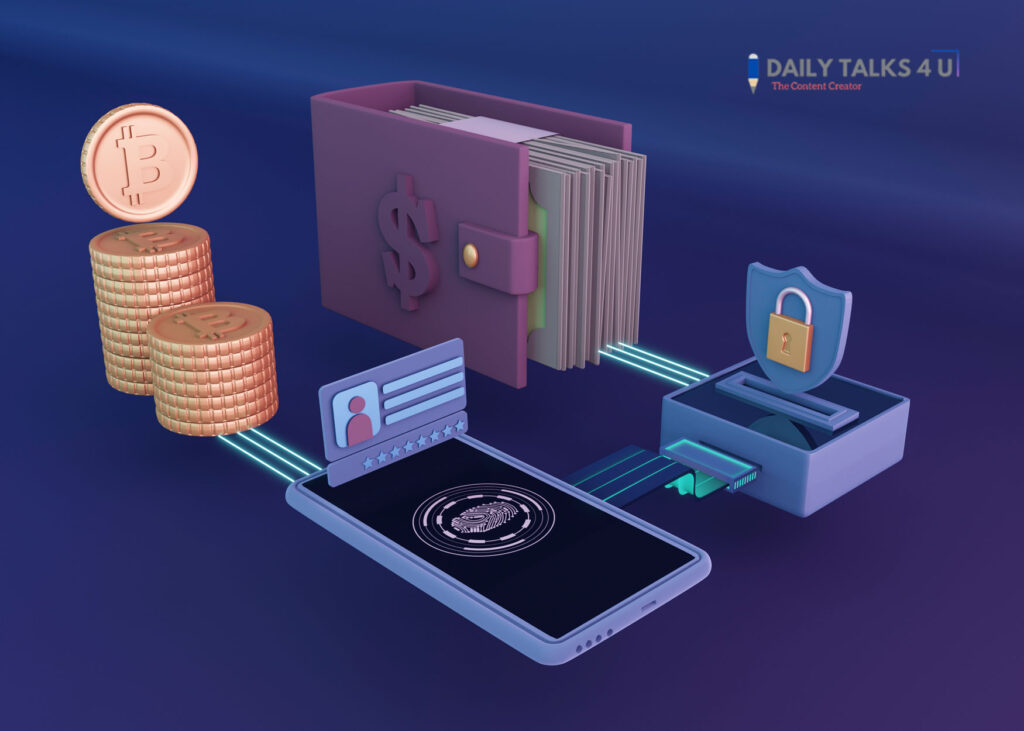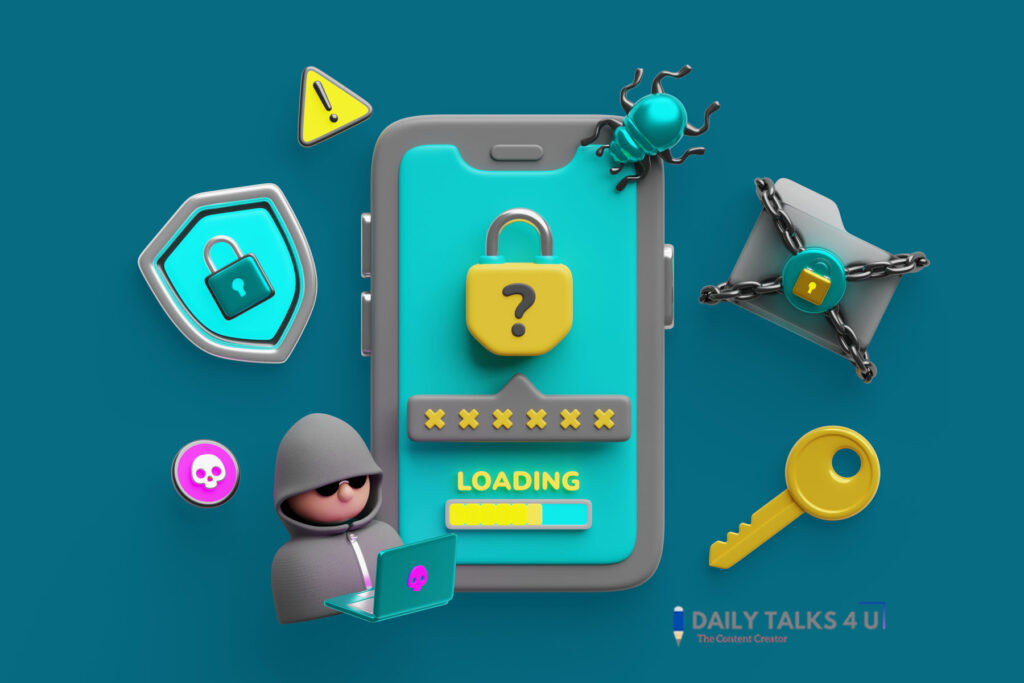Securing your Bitcoin has never been more important in a time where digital assets are being more widely used. As blockchain technology advances and global use grows, fraudsters create sophisticated methods to exploit flaws in cryptocurrency storage and transactions. Whether you’re a new or experienced investor, implementing strong security measures is critical to protecting your hard-earned crypto assets.
In this detailed article, we will look at the top five ways for securing your cryptocurrency in 2025. These tried-and-true methods are essential for anyone wishing to safeguard their investment against risks such as hacking, phishing, and loss of private keys.
Why Is Cryptocurrency Security Important?
Before we get into the tactics, it is vital to understand the significance of bitcoin security. With traditional banking, cryptocurrency operate in a decentralized manner. This means if your Bitcoin, Ethereum, or any altcoin is lost or stolen, there’s no central authority to recover it for you. Therefore, security becomes your personal responsibility.
A few real-world statistics that highlight the need for strong crypto security:
The total amount of cryptocurrency stolen in 2022 was over three billion dollars.
- Phishing and malware attacks targeting crypto wallets have increased by over 60% since 2021.
- Most stolen funds were lost due to poor crypto wallet security or weak passwords.
Now that we understand the risks, let’s explore the top 5 strategies to secure your cryptocurrency in 2025.
1. Use Cold Wallets for Long-term Storage
Cold wallets, sometimes referred to as hardware wallets or offline wallets, are physical devices that keep your private keys secure and offline. The greatest defense against online threats is provided by cold wallets rather than hot wallets, which are linked to the internet.
Advantages of Using Cold Wallets:
Resistance to online hacks and malware.
Not affected by phishing attempts or exchange vulnerabilities.
Perfect for Long-Term Storage of Large Cryptocurrency Holdings
Tips for Using Cold Wallets Safely
- Purchase only from the official manufacturer’s website to avoid tampered devices.
- Never share your recovery seed phrase or store it online.
- Keep the device in a secure location like a fireproof safe.
2. Activate Two-Factor Authentication (2FA) on All Crypto Accounts
One of the easiest yet most effective security measures is enabling two-factor authentication (2FA) on your crypto exchange, wallet, and email accounts. Strengthen your account security by adding an extra layer of protection beyond your password.

Types of 2FA Methods
- Use Authenticator Apps such as Google Authenticator or Authy
- Short message service -based 2Factor Authentication (less secure due to SIM swapping risks)
- Hardware Security Keys (like YubiKey)
Why 2FA is Crucial for Crypto Users
Benefits:
Even if your password is stolen, 2FA significantly reduces the risk of unauthorized access.
- Blocks most brute-force attacks.
- Widely supported by top crypto platforms like Binance, Coinbase, and Kraken.
3. Protect and Diversify Your Wallets
It can be dangerous to have all of your digital money in one wallet. The sacrifice of that pocketbook could cost you everything. Diversifying your cryptocurrency wallets according to usage is a safer strategy.
Suggestions for Wallet Strategy
For extended storage, use a cold wallet.
For frequent transactions (limited quantity), use a hot wallet.
When making modest transactions while on the run, use a mobile wallet.
Using shared access, a multi-signature wallet provides additional security.

Additional Wallet Security Practices
- Choose open-source wallets that are regularly updated.
- Avoid browser-based wallets unless you’re using hardware wallet integrations.
- Frequently update your wallet software and firmware.
4. Avoid Phishing Scams and Fake Crypto Apps.
Phishing is still one of the most common ways used by hackers to steal cryptocurrencies. Hackers create fake websites, emails, or mobile apps that look like actual services to confuse customers into revealing their private keys, seed phrases, or login credentials.
Common Phishing Strategies in 2025Email Spoofing is sending fake emails from exchanges requesting KYC updates or urgent logins.

• Harmful advertisements from Google can lead to fraudulent wallet download URLs.
• Impersonators pose as help agents or administrators on Telegram and Discord.
How to Protect Yourself.
- Always double-check URLs before logging into cryptocurrency exchanges.
- Save official webpages for crypto services you use frequently.
- Never disclose your secret password or key word to anybody.
- Use a password manager to prevent inputting credentials on bogus websites.
5. Regularly Backup Your Wallets and Use Strong Passwords
Backing up your wallets ensures that even if your device is lost or damaged, you can still recover your crypto holdings. At the same time, using strong and unique passwords for all accounts is essential for safeguarding your funds.
How to Backup Your Wallet Safely
• Write down your original idea phrase and maintain it in a rainproof, flame-resistant area. Avoid saving backups digitally (especially in cloud storage).
• Consider using metal backup wallets (steel plates) for extra durability.

Password Best Practices for Crypto Security
- Use a passphrase with 16+ characters, combining letters, numbers, and symbols.
- Don’t reuse passwords across different platforms.
- Use a reputable password manager, such as Bit warden or 1Password.
Bonus Strategy: Stay Updated with Crypto Security News
The crypto security landscape changes rapidly.
New vulnerabilities and threats occur on a regular basis To stay protected:
- Follow crypto security blogs and forums.
- Subscribe to security alerts from your wallet or exchange providers.
- Monitor GitHub repositories of the wallets you use for updates.
Final Thoughts
Cryptocurrency offers financial freedom, but it also comes with the burden of self-managed security.
Taking proactive steps today can save you from irreversible losses tomorrow.
These five strategies provide a strong foundation to protect your digital wealth in a decentralized world.
Security isn’t just a feature—it’s a necessity for every crypto holder.
FAQ’S:
1. What is the trend in cryptocurrency in 2025?
2.What are the new rules for crypto in 2025?
3.How to predict crypto trends?
4.Why is two-factor authentication (2FA) essential for crypto exchanges and wallets?
5.How can I recognize and avoid phishing scams targeting cryptocurrency users?
6.Do I really need a cold wallet for small crypto holdings?









